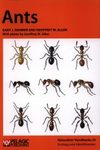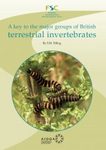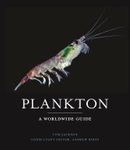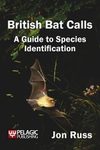Field / Identification Guide Identification Key
By: Charles Philip Wheater(Author), Helen J Read(Author), Charlotte Wheater(Author)
344 pages, 130 colour photos, 52 colour & b/w illustrations, 280 b/w line drawings, 10 tables
![Animals Under Logs and Stones Animals Under Logs and Stones]()
Click to have a closer look
About this book
Customer reviews
Biography
Related titles
About this book
Logs, stones and the like provide an interesting interface between the damp depths of the soil and the drier open ground surface, offering refuges for a fascinating array of animals. The communities of organisms that live beneath them are little noticed and even less studied, yet the potential for ecological work here is great. Some of the animals are relatively large and frequently not difficult to find. They exhibit a wide range of lifestyles – from slow slugs or snails to very fast centipedes, from generalist to specialist feeders and from herbivores to carnivores.
With chapters covering the cryptosphere environment, species groups, identification, guidelines and ideas for further research, this much-expanded and updated new edition also includes extensive, easy-to-use, comprehensively illustrated keys. Ground-surface debris can be found almost anywhere, often presenting highly accessible microhabitats for study and bringing immediate rewards to the curious: here is the ideal tool to unlock these worlds.
Customer Reviews
Biography
Philip Wheater is Professor Emeritus of the School of Science and the Environment, at Manchester Metropolitan University. His interests include ecology and management of human-influenced environments, especially urban systems; invertebrate conservation and management; access to, provision and assessment of environmental education; environmental monitoring, especially fieldwork and the use of statistics.
Helen Read is a Conservation Officer for the City of London Corporation based at Burnham Beeches, a post held for over 30 years. After a degree and MSc from the University of Manchester and a PhD from the University of Bristol studying woodland leaf litter invertebrates in relation to pollution, she spent 18 months working on millipede taxonomy at the Zoological Museum in Copenhagen. She has written numerous books and papers on a variety of subjects, the majority being on the management of veteran trees and topics relating to invertebrates. She has also been an active committee member in various invertebrate societies.
Field / Identification Guide Identification Key
By: Charles Philip Wheater(Author), Helen J Read(Author), Charlotte Wheater(Author)
344 pages, 130 colour photos, 52 colour & b/w illustrations, 280 b/w line drawings, 10 tables
"Every aspect of observing, collecting and recording the diverse fauna that can be found under logs, stones and similar micro habitats is covered in this greatly expanded and extended 2nd edition. The authors have thought of everything, with apposite in-text references and a valuable bibliography, sampling techniques, guidance on equipment, health and safety and much more. Even if you never take the study of millipede or molluscs any further, there is something in this book to spark the interest of every enquiring naturalist."
– Paul T. Harding MBE





















































